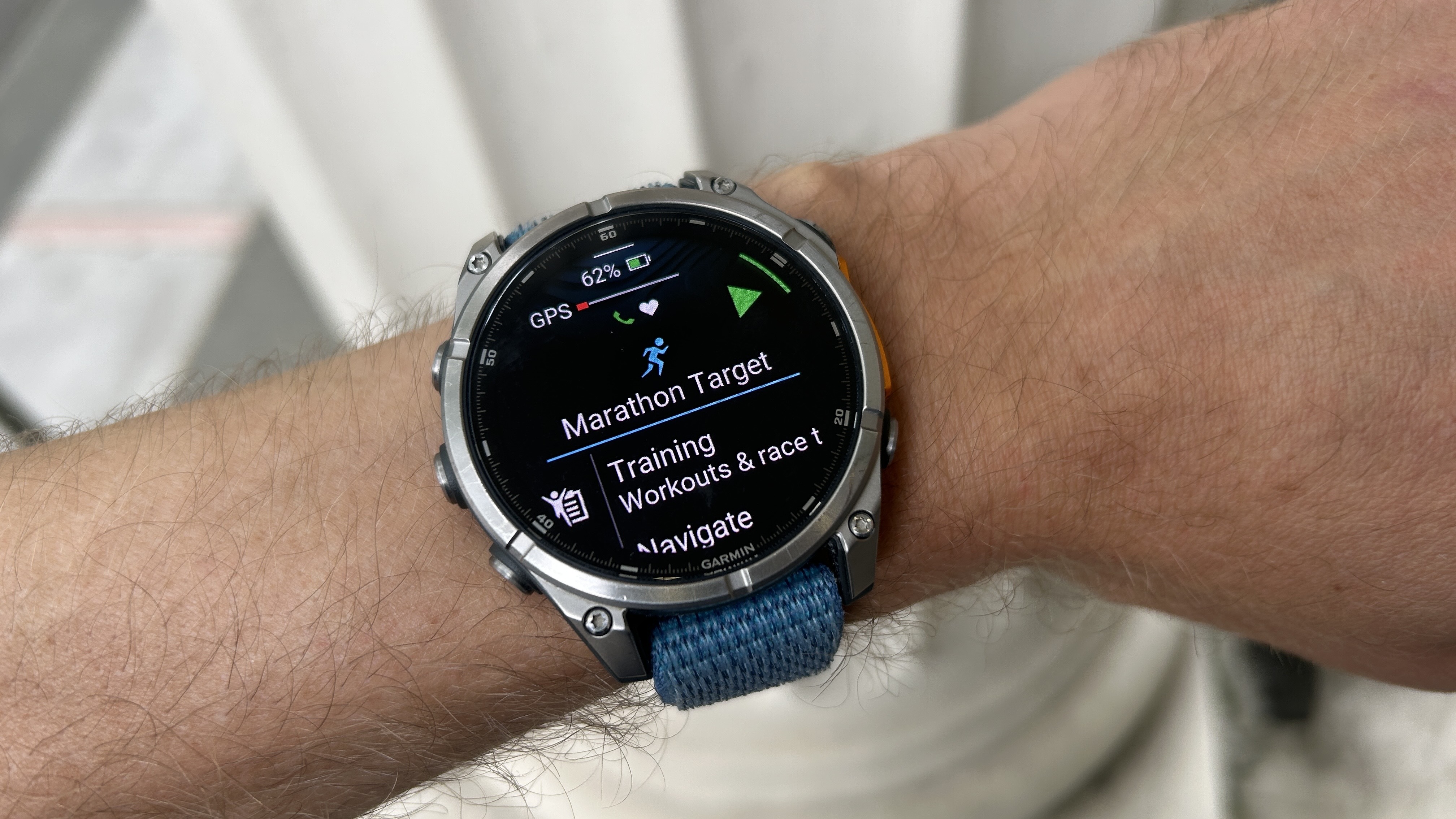How to Stop ISPs from Selling Your Private Data
The Senate voted to overturn an important broadband privacy rule, and you may not be able to do much to keep your data safe from ISPs.
The Internet may seem like an apolitical entity, but the fact is, the United States government has a great deal of influence over it. On Thursday (Mar. 23), the U.S. Senate voted to overturn an important broadband privacy rule instituted, but not implemented, during the Obama administration. While the ruling is great news if you’re a huge telecom company, it may have more unfortunate ramifications if you’re an everyday user.
[UPDATED April 4: President Trump has signed this legislation into law.]

Just as it could before, your ISP will be able to collect and sell your online data with reckless abandon, and frankly, unless you're willing to kneecap your own Internet access, you can't do much about it.
Reuters covered the Senate’s vote on S.J.Res 34, which would technically determine whether the Federal Communications Commission or the Federal Trade Commission would regulate internet privacy at an individual level. Back in October 2016, the FCC passed a set of new rules that would have given users more control over how ISPs handle their data.
The rules were set to go into force later in 2017, but if S.J. Res 34 gets approved in the House of Representatives as well, and signed by President Trump, then the FCC's proposed changes may never come to pass.
What Can You Do?
In terms of protecting data, users have precious few options. The most obvious step is to contact your ISP to opt out of the service's customer-data-collection program. (The FCC's new rules would have made this choice an opt-in measure instead, meaning that ISPs couldn't sell this data without the customer's explicit consent.) It's often pretty hard to find where to opt out of this on most ISPs' websites; we suggest just calling customer service and bugging the support staff until they let you opt out.
You can always invest in a virtual private network (VPN), which encrypts all of your Internet traffic and routes it through a proxy IP address. This would prevent your ISP from seeing what you do, but it also could slow down your Internet connection speed significantly. We recently reviewed several free and paid services to name our best VPN picks.
Sign up to get the BEST of Tom's Guide direct to your inbox.
Get instant access to breaking news, the hottest reviews, great deals and helpful tips.
Every single thing you do gets pinged between a whole bunch of servers, making simple tasks like streaming video or online gaming much less efficient. You could also use a privacy-focused service like Tor, or get a VPN router, but you’d be sacrificing a lot of convenience either way.
How Did This Happen?
Under the previous presidential administration, the FCC passed regulations that while ISPs can have access to your online data in a general sense, they would to obtain consent from users before acquiring — or, more importantly, sharing — details like browser history, location services, financial information, health inquiries, and so forth. S.J.Res 34 blocks these new regulations and allows telecom companies to gather whatever they want, and sell it to whomever they want, more or less without restriction — just as they can right now.
In case you’re wondering how on Earth the Senate could pass such an invasive measure, well, it gets political. Facebook and Google possess a ton of your data, but those companies are (generally) not broadband providers, and as such, aren’t subject to the same FCC rules as ISPs. As such, ISPs don’t have access to whatever data you share with Facebook and Google, and they feel entitled to their cut as well.
MORE: How a VPN Can Boost Your Security and Privacy
Facebook and Google are liberal-leaning companies; traditional cable companies lean conservative. Every Democrat in the Senate voted against the measure, whereas all but two Republicans voted for it. The ugly truth is that your privacy is being taken away as part of a partisan political struggle. If you don’t like it, you could take it up with your representatives during midterm elections.
(There is, however, another side to the story. Facebook and Google do have access to a lot of your data, and can buy, sell and manipulate it as they please. ISPs want to be accorded the same rights as the companies to which they provide access, which, as a legal argument, has some merit. In some cases, Facebook and Google even act as ISPs themselves, with Google Fiber in the United States and Facebook providing free Internet access in countries like Myanmar.)
What's Next
Before you start building a bonfire for your electronics, keep in mind that the bill still has to pass muster in the House of Representatives before anything happens. Your data is safe, at least for the time being. But the House is also controlled by Republicans at the moment, and they may well follow the Senate’s lead. (The House could also oppose the bill, since many Republican congressmen are concerned with privacy.)
The FCC has vowed to protect consumer privacy, even without the provisions that the Obama administration put in place, so it may still find a way to keep your data safe. On the other hand, if recent history has shown us anything, it’s that when extremely powerful corporations wants something badly enough and the government is on their side, very few things can stand in their way.
Marshall Honorof is a senior editor for Tom's Guide, overseeing the site's coverage of gaming hardware and software. He comes from a science writing background, having studied paleomammalogy, biological anthropology, and the history of science and technology. After hours, you can find him practicing taekwondo or doing deep dives on classic sci-fi.
-
Amiron People need to use encryption. The best encryption tool used for anonymity purpose is “VPN” as mentioned here https://www.purevpn.com/blog/broadband-privacy/. A VPN provides you the best encryption as it encrypts your internet activities and let your ISP provider away from your internet browsing history.Reply
Using a VPN is the only solution to stop internet providers spying on your internet activities and browsing history. -
MrJax It's time to stop using the internet (until the laws change) and go hang out at the beach with real people!Reply -
max3d2 Frankly, I do not care whether or not the data collected on me is sold. It may help companies find potential customers thus making those companies more successful. Thus, in turn, helping me find something that I have been looking for. As well as providing more jobs for Americans. Hopefully, Americans and not some offshore company in Thailand or some other country. It seems this type of marketing has been done for years and is nothing new. Have you ever noticed that when you do a search for some item you are interested in buying, all of the pop-ups and ads you start seeing is mainly focused on that item? It is nothing new folks! It is nothing more than the Leftist trying to slam President Trump. The stupidity in America has found an all-time high. Or rather that level of human ignorance has always been with us. The clarity of that ignorance has been made crystal clear looking thru the window of reality. The window of reality for the Left is the fake news and lies propagated by those who want to control the minds or the sheeple. Those of whom are more easily controlled by fear and hate. We have seen this daily during and after this election cycle. Big brother has always been watching us as well as the companies that have controlled Washington for several years. The Washington Crooks who have been fleecing America are pissed off because they cannot control President Trump. Help make America great again. Tell a stupid Liberal to STFU!Reply -
max3d2 AMIRON is also correct. If you want this type of privacy a VPN is the way to go. That way all your porn searches and or what not you want to hide from the light of day cannot be seen. Unless the VPNs start selling that data themselves secretly since most of them are offshore and are not under US law. When it comes to money people will do anything for it. Do not think that an offshore VPN would be any different no matter what they claim.Reply -
strangepork MAX3D2, Ive been looking over your google searches and all of your lab results on your hospitals website,and see you have health issues. We have cancelled your medical insurance. Its more profitable to let you die, like you said in your post. Please die a quick death now that you are welfare scum and a drain on PATRIOTS!Reply -
reign10057 Wow, if that isnt textbook definition of the pot calling the kettle black. First of all, Trump and his campaign organizers are the ones who invented "Fake News" and it is entirely how Trump came to office. Just because real facts do not jive with your construed narative of how you think the rest of the world should live, does not make the facts FAKE? I mean just read the damn article! How does a bill, that your hero Trump signed into law!, that takes privacy and rights away from the average person, the consumers, and gives more power to the corporations aka Corporate America aka Trump Cronies, in any way good for us as average citizens. Im sorry you were too stupid to see through Trumps campaign lies but he has done nothing yet that benefits American citizens but plenty for Big Business. I just hope for your sake your actually paid to spew your rhetoric and do not actually believe it. I can guarantee Trump will be impeached within the next 2 years. Bet on it. He is as dirty as any politician I have ever seen if not worse.Reply -
Franky_123 Well ISPs are simply invading into our privacy and its really disturbing to see, most of the people are on with it! I certainly agree with Amiron that a VPN is a savior and one should buy it to keep data encryptedReply

